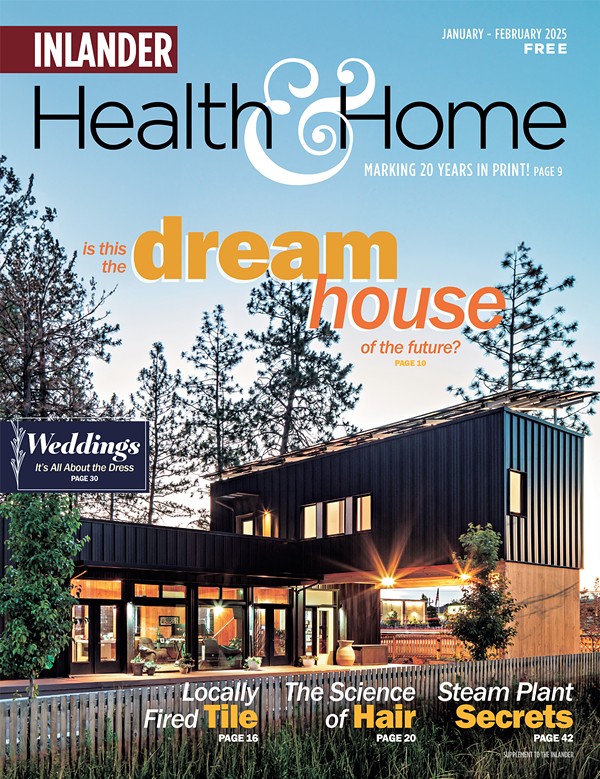Local editorials occasionally make the plea that we get a return on the dollars we commit to community economic development. And readers will often lament the lack of dialogue on community economic development. One recent letter to the editor even made a tongue-in-cheek reference to Spokane heading down the path towards becoming "Spokanistan." While, of course, this is a grand overstatement, an occasional re-examination of our economic development strategy is worthwhile.
While not a long-term Spokanite (but with more than 10 years of residence), I have been an observer and sometime participant in our community economic development initiatives. During that time, I have watched as we intermittently chased smokestacks, talked of a manufacturing future and worshipped the silicon chip. We are now worshipping at the altar of biotechnology.
At each phase, we were there with several thousand other communities -- all just a few years behind the curve.
While agriculture, timber and mining will continue to be a part of our future, none of them will dominate again, and they are not candidates for a future economy. With the loss of these resource-based sectors, Spokane no longer enjoys the ability to create wealth as it once did. With the loss of wealth creation comes a reduced ability to compete with other second-tier cities. Boise found a replacement source of wealth in Micron. In the same time frame, Spokane has failed to discover that next source of wealth. Even worse, it has ignored the true base of the area's economy: health services and government.
While recognizing what is gone, we have not systematically examined what remains. Intuitively we know that successful business sectors will be information-based as the United States moves towards a knowledge economy. But we have certainly not developed strategies for the future of our strengths.
So what is our remaining economic base? The two largest private-sector employers in Spokane County are Providence Services of Eastern Washington (Sacred Heart and Holy Family Hospitals) and Empire Health Services (Deaconess Medical Center and Valley Hospital). Neither of these are smokestack, manufacturing, silicon chip or even biotechnology industries.
But as important as the health services sector is, it pales by comparison to employment in the public sector. Employment at Fairchild Air Force Base, in local government, school districts and the area's public colleges and universities eclipses major private-sector employment.
While the public sector is not generally considered by Spokanites to be a popular investment, it is a center of wealth creation whose stability serves as a counterbalance to the wilder swings of the private sector. A strong public sector is also one of the fundamental characteristics of a regional city.
Turning now to private-sector strategies, not only have we under-recognized the health services sector, we have under-invested in it both socially and politically. Our hospitals and medical communities are under tremendous stress. Physicians are leaving the community in significant numbers; hospitals are closing programs and insurers have left the region.
The medical community is at a critical juncture. It deserves community attention. It is time that we stop chasing widgets and recognize the sectors where we still enjoy a comparative advantage: health services and the public sector.
Rich Hadley, president of the Spokane Chamber, describes Spokane as a "Capital City Without a Capital." Cecil Andrus, formerly governor of Idaho, referred to Spokane as the economic capital of Idaho (with Boise as the political capital and Salt Lake City as the cultural capital). These gentlemen know that Spokane is a city -- a true regional city -- that serves the multi-state Inland Northwest. We provide health care, education and public services to that region. Our economic future is in further developing our capacity in these areas.
At a recent economic development meeting, one example provided by former Gov. Locke in touting his administration's support for the other Washington was tax relief for call centers in rural areas. With all due respect, call centers are the absolute last enterprise needing promotion in disadvantaged areas. Call centers will find cheap labor without help. Conscious strategies like this serve only to promote the underdevelopment of individuals and regions already at the margins.
We will not succeed if we follow the traditional economic development path of attempting to recruit our way to prosperity. Other alternatives are possible. Take Austin, Texas, where the community determined that it was not simply going to steal companies from other areas but rather build its own institutions. Austin embarked on a strategy to build up research capacity by recruiting talent that served as a "talent magnet." And Austin is booming.
I suggest that we can learn from communities like Austin. Let's build on our strengths by investing in the health care sector as our own talent magnet for Spokane.
Instead of chasing widgets or providing tax relief for call centers, let's promote a medical research agenda for our local universities, physicians and hospitals that builds on our strengths and will help this sector remain competitive. Let's also work with our congressional delegation to establish a national laboratory or governmental research and development center in Spokane, simultaneously providing the stability of public-sector employment along with research benefits for the private sector.
William H. Gray, Ph.D., is the former CEO and Dean of Washington State University at Spokane and former Chairman of the Board of Empire Health Services. His views do not necessarily represent those of these organizations.
Publication date: 1/20/04
















